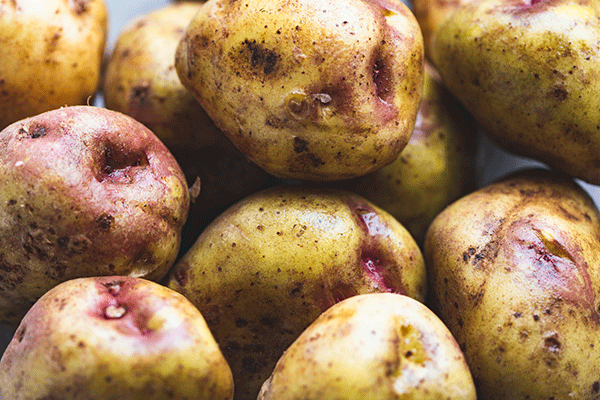The government is relaxing red tape around trials of gene-edited fruit, veg and livestock despite a public consultation that suggested most people support continuing regulation.
A public consultation launched earlier this year gathered views on the regulation of genetic technology in food, asking whether gene editing (GE) should still be considered as a genetically modified organism (GMO).
At its crux is a heated debate where proponents insist gene editing fast tracks breeding that could be done ‘naturally’ (in contrast to genetic modification), while critics say the effects on human health, contamination and transparency in labelling are unknown.
The survey, which had over 6,000 responses ranging from individuals, businesses, public sector bodies and NGOs, found that most individuals (88 per cent) and businesses (64 per cent) supported continuing to regulate gene-edited foods as GMOs.
Non-governmental organisations (NGOs) were evenly split while public sector bodies (55 per cent) and academic institutions (58 per cent) did not support continuing to regulate such organisms as GMOs.
Those in favour of continuing regulation viewed traditional breeding methods as having an established safe history, and the scientific understanding of GE as incomplete. Those in favour of changing the regulations viewed gene editing as helping plants and animals adapt to climate change while reducing pesticides.
The majority of individuals (87 per cent) and businesses (64 per cent) stated that there was a greater risk to human health, and said there was a greater risk raised concerns about unintended consequences, potential environmental, human health and animal welfare issues, and cross-contamination with non GEOs.
Respondents who stated the risks were the same (or lesser) said GE was more precise than traditional breeding and noted benefits such as disease tolerance and less pesticide use.
Other concerns were raised around accountability and transparency, including the importance of consumer choice and labelling to indicate whether a product is derived from gene-editing, as well as ownership and intellectual property relating to GEOs.

In response to the consultation, and in a move criticised as “creative accounting” and overweighting the response by public sector bodies, Defra has announced it will remove red tape around research and development of gene-edited crops.
In effect, this means researchers will no longer need to apply for a license to conduct field trials of gene-edited crops. This will be followed by primary legislation to change the definition of genetic modification to exclude gene editing from current regulations.
Director of GM campaign group, Beyond GM, Pat Thomas, said: “The vagueness of today’s announcement suggests that the government did not get the answers it was hoping for in its public consultation and that the public has expressed little appetite for deregulating an experimental technology that could heap more disruption on a food system already in crisis.”
Joanna Lewis, director of policy and strategy at organic certification Soil Association, said: “A high-tech free for all won’t help. What will help is a reversal of the historic lack of investment in agroecological, nature-friendly methods and farmer-led technology, as highlighted by the National Food Strategy.
“There is a key difference with gene edited organisms that the government continue to ignore – they can be heavily patented and play heavily towards corporate interests. What is to stop profit-driven interests overpowering the hopes that the government have for the technology? How do we avoid farmers losing even more control of their crops seeds? How do we prevent crops being designed to sell more pesticides, not less?
“At a minimum, UK shoppers should be reassured that other products will not be cross-contaminated by gene-editing trials.”
Scientists including the government’s chief scientific advisor, Gideon Henderson, and chief executive of crop science organisation NIAB, Tina Barsby are among those who have spoken in favour of gene editing, with Barsby calling for organic farmers “to stand against the doctrinal opposition of their certifying bodies” and see gene editing as a way of reducing chemical inputs and making crops more resilient against climate change.
Environment secretary George Eustice said: “Gene editing has the ability to harness the genetic resources that nature has provided. It is a tool that could help us in order to tackle some of the biggest challenges that we face – around food security, climate change and biodiversity loss.
“Outside the EU, we are able to foster innovation to help grow plants that are stronger and more resilient to climate change. We will be working closely with farming and environmental groups to ensure that the right rules are in place.”















Sounds like another thing where the gov’t is just bowing to people who stand to make a lot of money out of something that is not for our benefit. Is this another example of the industrialisation of our food. Would our food have been safer in Europe?